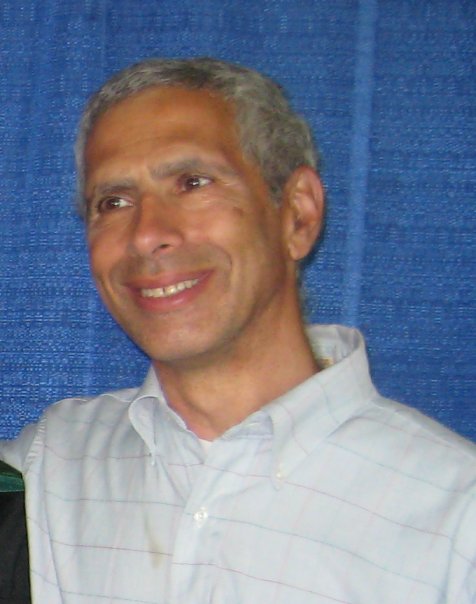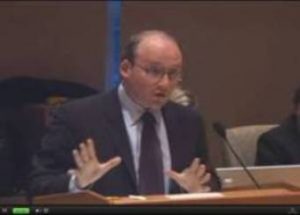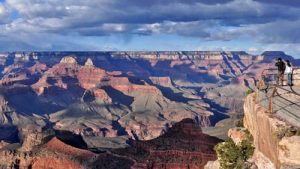Advocacy, Get Involved
SC Mainers React to Attack on Environmental Protections by Mining Interests
March 30, 2012
Mining companies are not just aiming to start operating in El Salvador, they also are trying to loosen regulations and move in to states like Wisconsin and Maine. As we reported in February, Wisconsin is facing the destructive effects of corporate mining with proposed gold and iron mines and the expansion of sand mining for hydraulic fracturing. The mining companies interested in Wisconsin are promoting a bill (AB 426) that would drastically speed up the mine permitting process and eliminate environmental protections that are part of Wisconsin’s existing mine regulations. Similarly, environmental groups and members of the Sister Cities committees in Maine, were recently alerted to the efforts of a mining company to change the environmental protections in that state.
According to the Bangor Daily News, “environmental and conservation groups are accusing the state’s largest landowner — J.D. Irving — as well as some lawmakers of attempting to rewrite Maine’s mining regulations in the span of a few weeks without adequate public scrutiny or debate. The result, opponents warn, could be poisoned lakes, streams and groundwater sources near Bald Mountain and other Maine places where gold, silver and other valuable metals are locked away in the bedrock.”
Its the same old story in El Salvador, Wisconsin and Maine. Mining companies come in offering jobs, promising that new mining technologies will protect the local environment and using their politician buddies to loosen regulations that would get in their way. But like in El Salvador and Wisconsin, Mainers are organizing to stop mining companies from coming in to their communities.
To read more about the mining threat in Maine see these links:
Bangor Daily News- There is Gold in Aroostook County
Bangor Daily News- Relaxing Mining Rules is Fools Gold
The Maine House of Representatives held a public hearing on the proposed law on Friday, March 30th. The following statements by Sister City’s members Dennis Chinoy and Jan Morril were read at the hearing by the National Resources Council of Maine:
Dennis Chinoy, Bangor, ME:
Dear Senators Saviello, Sherman, Goodall and Representatives Hamper, Ayotte, Knapp, Nass, Long, Parker, Duchesne,Innes, Welsh and Harlow,
I’m unable to attend the hearing on Friday March 30th but would like to offer this testimony to the Maine Joint Standing Committee on Environment and Natural Resources in favor of a cautionary approach to LD1853.
I have no technical expertise to assess the possible environmental and health risks posed by open pit precious metals mining , short and long term, that might result from Irving’s proposed project in Northern Maine. What I do have, through my involvement with the U.S. – El Salvador Sister Cities Network (Bangor has a sister city in El Salvador), is some familiarity with the concerns of communities in that country who have had to contend with the consequences of similar precious metals mining in their areas, and with mining companies who are pressing the Salvadoran government to permit further open pit precious metals mining excavation. Currently in El Salvador, concerns re acid mine drainage, sometimes appearing, then persisting, years later, are sufficiently grave that the government has now instituted a moratorium on all precious metals mining in the country.
There, as here, the mining companies claim that newer, “greener” state-of-the-art technologies should assuage longstanding concerns about polluted water supplies. However, Salvadorans have seen the long-term effects of similar projects in neighboring Guatemala and elsewhere and they are not persuaded. These are projects which, as in Maine, would require the pulverization of roughly one ton of mountain rock per gram of gold, using cyanide extraction techniques,. Salvadorans we know have seen themselves the overtly polluted waters left behind, years after the mines have closed and after the mining companies, which had offered the same reassurances we are hearing in Maine, have long since departed.
I don’t know if these situations are exactly parallel, or not. Nor, I imagine, more to the point, do you. But last minute introductions of complex mining regulations, written by a mining company’s law firm, submitted 24 hours prior to a public hearing, with insufficient time to adequately study this complicated topic, should make you wary of what is going on here.
As you may know, the historical track record of mining companies in general with regard to fair assessments of the long-term environmental impact of their activities does not inspire confidence. The quickly polarized atmosphere now being framed as “Enviromentalist Southern Mainers vs job-needy Northern Mainers”, is additionally unhelpful, and distracting. None of this provides reassurance that in under four weeks the Maine Legislature can make decisions commensurate with the dispassion and complexity that this issue, the Maine environment, and the people of Maine deserve.
I hope you will not vote to approve LD1853 until you can answer the pertinent questions of long-term environmental safety, or feel comfortable that they are answered to your satisfaction by experts whom you can deem impartial.
I’d leave you with a recent photo of the San Sebastian Stream a few miles downstream from Santo Rosa de Lima in El Salvador, site of a mine owned, operated and now abandoned by the Commerce Mining Group. Its waters several years later still harbor elevated levels of cyanide and heavy metals,. Its pH is 10,000-fold more acidic than uncontaminated water in the same region. Its waters are devoid of fish. I hope you can reassure yourself, and me, and the people in the Bald Mountain area as well as elsewhere in Maine where LD1853 could permit mining under these new regulations, that your vote won’t make this possible.
Respectfully,
Dennis Chinoy
Bangor, ME
Jan Morrill, Orrington, Maine and San Salvador, El Salvador:
Dear Senators Saviello, Sherman, Goodall and Representatives Hamper, Ayotte, Knapp, Nass, Long, Parker, Duchesne,Innes, Welsh and Harlow,
I would like to submit my testimony for the Friday March 30th hearing in front of the Maine Joint Standing Committee on Environment and Natural Resources, because I will not be able to attend in person. I am in favor of a cautionary approach to LD1853.
I was born and raised in Orrington, Maine on the banks of the Penobscot River. However, for the last four years I have been living in El Salvador and working in coordination with people who have struggled with blood, sweat and tears to stop gold, silver and copper mining projects in their communities and country as a whole. I coordinate on a daily basis with the National Roundtable against Metallic Mining in El Salvador and the hundreds of communities it encompasses.
Mining companies have come to communities in El Salvador, and now in Maine, touting jobs and “environmentally-safe mining” which uses, they claim, new technology and new techniques.
This is very different than what I have seen firsthand. I have seen water turned the color of cranberry juice by the high levels of metals leaching out of mine sites that have been inactive for 30 years. I have talked to families who are facing kidney failure, cancer and rare diseases that attack the central nervous system as a result of drinking this contaminated water. I have experienced the agony of families who have seen their loved ones, environmental activists in communities divided by whether or not to allow mining, murdered for opposing these projects. I have talked to unemployed former miners who said that even if mines were re-opened in their communities, they would not work there because of the negative effects they have seen in their communities and their own health.
Everything I have learned and seen in El Salvador has convinced me that mining continues to be an extremely dangerous and dirty industry. It has been said time and time again by experts from across the world that mining is one of the most polluting industries on earth. According to many experts, like Dr. Richard Steiner from the Commission on Environmental Economic, and Social Policy (CEESP), there is no such thing as a mining project that does not cause some sort of secondary effects on the environment surrounding the mine site. You don’t have to do much research to learn that “environmentally-safe mining” still uses cyanide and can create acid mine drainage, a toxic runoff of metals like lead and cadmium.
The large scale gold mines, like the ones in South and Central America, create hundreds (not thousands) of jobs, at best. Also, the average life of a mine is between 6 and 10 years. What we don’t need in our state is unsustainable short term employment. The jobs promised by mining companies are not the jobs we want for our fellow Mainers.
I urge you to not take my word for it regarding any of this information. Take your time. Do your research. Investigate how acid mine drainage would affect Maine watersheds. Verify exactly how many good jobs would be created by the proposed mines and more importantly, how long they will last. You can rush to decide on this legislation in a few weeks, but our health, environment and livelihoods will be feeling the effects of an erroneous, rushed decisions for decades, if not centuries. I am confident that if you take the time to research and debate this proposed legislation and to listen to the concerns of your constituents, you will decide not to pass LD 1853.
Thank you for your time and please feel free to contact me with any questions or for further information.
Below is a picture of an open-pit gold mine in Costa Rica. Please imagine what that would look like in Northern Maine.
Sincerely
Jan Morrill
Orrington, Maine and San Salvador, El Salvador



